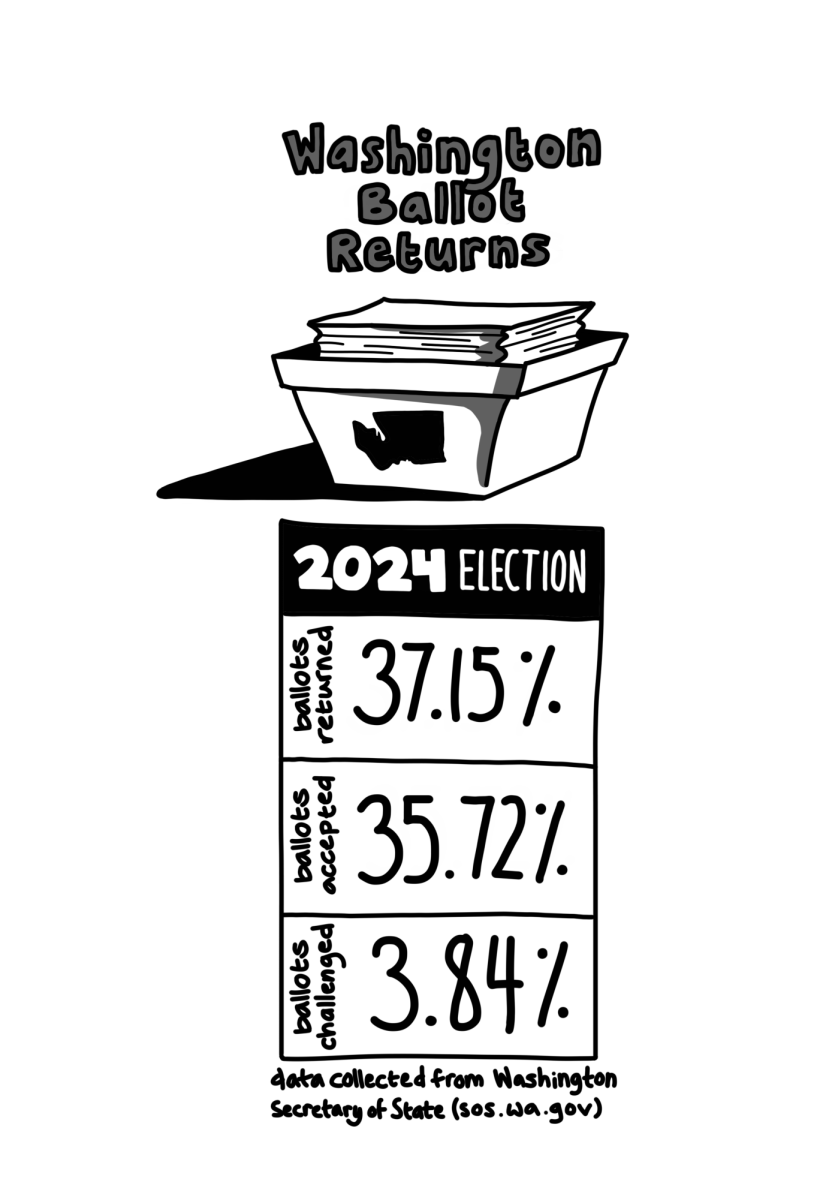
Whitman’s new All Students for Consent (ASC) club was featured in national news outlets after winning the Consent Revolution Awards, put on by an awareness and anti-rape media outlet called Force, last week.
The win was a result of ASC’s recent “Ask For It” campaign, meant to turn an often abused phrase on its head by promoting healthy and consensual sexual relationships. Students in ASC asked to give studiers chocolate “kisses” in the library, and temporary tattoos saying “I ask for it” were handed out freely on campus.
Force, a media organization whose mission is “upsetting rape culture,” organized the contest and asked colleges and universities to submit a photo of creative consent promoting activities and campaigns. To win, schools were required to get the most Facebook “likes” on their photo.
ASC submitted a picture of the group’s core members standing in front of posters promoting consent that were distributed across campus during events for the “Ask For It” campaign. The photo received over 800 likes, most from Whitman students. ASC won the contest, along with consent advocacy groups from UCLA, Connecticut College, University of Oregon and Arizona State University. As a result, ASC was featured in the Huffington Post, Bitch Magazine and Think Progress, among other news outlets, bringing significant media attention to Whitman and the group.
Hundreds of students “liked” the photo, and it got many of them thinking about why the campaign was important to Whitman.
“I liked the photo because I appreciate the campaign [ASC] was doing. People’s feelings are very important, and especially in intimate situations, it is crucial to feel like you can and should check in with them,” said sophomore Megan O’Brien.
The success of the Ask For It campaign came after months of hard work from founding members juniors Sayda Morales, George Felton, Corinne Vandagriff, Sam Fischer and senior Yana Vasquez. The idea for ASC came during the ASWC Sponsored Power and Privilege Symposium in April 2013. Events for Take Back the Night, an evening of awareness and story sharing, were approaching, and this group of five students wanted a way to bring consent promotion to the fraternities.
Morales, co-founder and co-president of ASC, brought awareness to her women’s fraternity, while Felton and Fischer did the same with their fraternities.
“Sam worked on implementing consent in his fraternity, Phi Delta Theta, as part of the new member education and risk management position. George worked on getting us to present at his fraternity, Tau Kappa Epsilon,” she said in an email. “Corinne and Yana worked on creating a curriculum to present to the fraternity men. I reached out to the women of my sorority, Kappa Alpha Theta.”
Felton, Vasquez, Vandagriff and alumnus Matt Raymond ’13 presented to nearly every member of TKE at the end of April.
After witnessing events promoting safe and consensual sexual behavior last year, the founding members of ASC observed that not enough was being done to advocate for consent. The problems were not ones that could be solved by existing programs, but required a new way of thinking, one that called for direct and simple advocacy on personal levels.
“The impetus for this grew out of frustrations raised by the Sexual Assault Panel and Take Back the Night, where a clear problem of sexual assault at Whitman was presented, but one we didn’t feel was being solved,” said Felton in an email. “We decided that this problem needed to be addressed at the individual level.”
Another significant inspiration for ASC’s formation was a general feeling that the Green Dot program, while essential to Whitman in its focus on students watching out for one another, did not do enough to prevent sexual assault. The Green Dot program asks students to be aware, especially at parties involving alcohol, of suspicious activity. If someone sees a friend becoming inappropriate with someone else, they are encouraged to “green dot,” or stop violent or suspicious behavior before it happens. However, in the view of ASC, Green Dot can only do so much and cannot work when there are not onlookers to a situation.
“The reality is that Green Dot is a bystander program meant to encourage Whitman students to look after one another, but what about when you are alone in a room with someone, or others, and one of you wants to interact sexually with the other?” said Morales.
The “Ask For It” Campaign sought to encourage conversations about consent and general awareness among all students. Though the contest win has been exciting for students involved with ASC, they still believe that Whitman has a lot to think about regarding consent.
“Consent is about respecting others and respecting yourself. Consent is not only meant for sexual activities, but should be practiced whenever you want something from another human being. Consent is not only sexy and fun, but it is also necessary,” said Morales.








